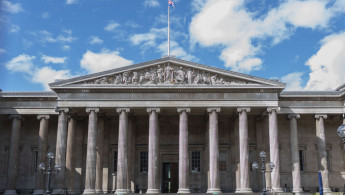British Museum sacks employee over 'missing, stolen or damaged' items
The British Museum said on Wednesday that it had dismissed a staff member and alerted the police after items from its collection were found to be "missing, stolen or damaged".
The items included gold jewellery and gems of semi-precious stones and glass dating from 15th century BC to the 19th century, it said in a statement.
"This is a highly unusual incident," said Hartwig Fischer, director of the museum in central London, which is best known for housing collections that include the Rosetta Stone and the Parthenon Marbles.
"We take the safeguarding of all the items in our care extremely seriously," he said.
"The museum apologises for what has happened but we have now brought an end to this – and we are determined to put things right."
The museum said legal action would now be taken against the former employee, and an investigation was under way headed by the economic crime unit of London's Metropolitan Police.
Most of the items affected were described by the museum as "small pieces kept in a storeroom belonging to one of the museum's collections".
None had been on recent public display and they were kept mainly for academic and research purposes, it added, without elaborating.
Fischer said security had been tightened and outside experts had been brought in to help compile a "definitive account" of what was missing, damaged or stolen.
"This will allow us to throw our efforts into the recovery of objects," he said.
George Osborne, chairman of the British Museum, said its trustees were "extremely concerned when we learnt earlier this year that items of the collection had been stolen".
He said the priority was to recover the items, find out what could have been done to prevent the thefts, and "do whatever it takes, with investment in security and collection records, to make sure this doesn't happen again".
Founded in 1753, the British Museum is one of the most famous galleries in the world, with a collection of around eight million objects, including ancient artefacts such as Egyptian mummies.
But in recent years the museum has faced increasing pressure to address the contested items in its collection, which were acquired during the era of the British Empire.
This includes one of the museum's prized exhibits, the Parthenon Marbles, also known as the Elgin Marbles, which Greece insists should be returned.
The sculptures were taken from the Parthenon temple in Athens in the early 19th century by British diplomat Lord Elgin and have been held by the British Museum ever since.





 Follow the Middle East's top stories in English at The New Arab on Google News
Follow the Middle East's top stories in English at The New Arab on Google News


